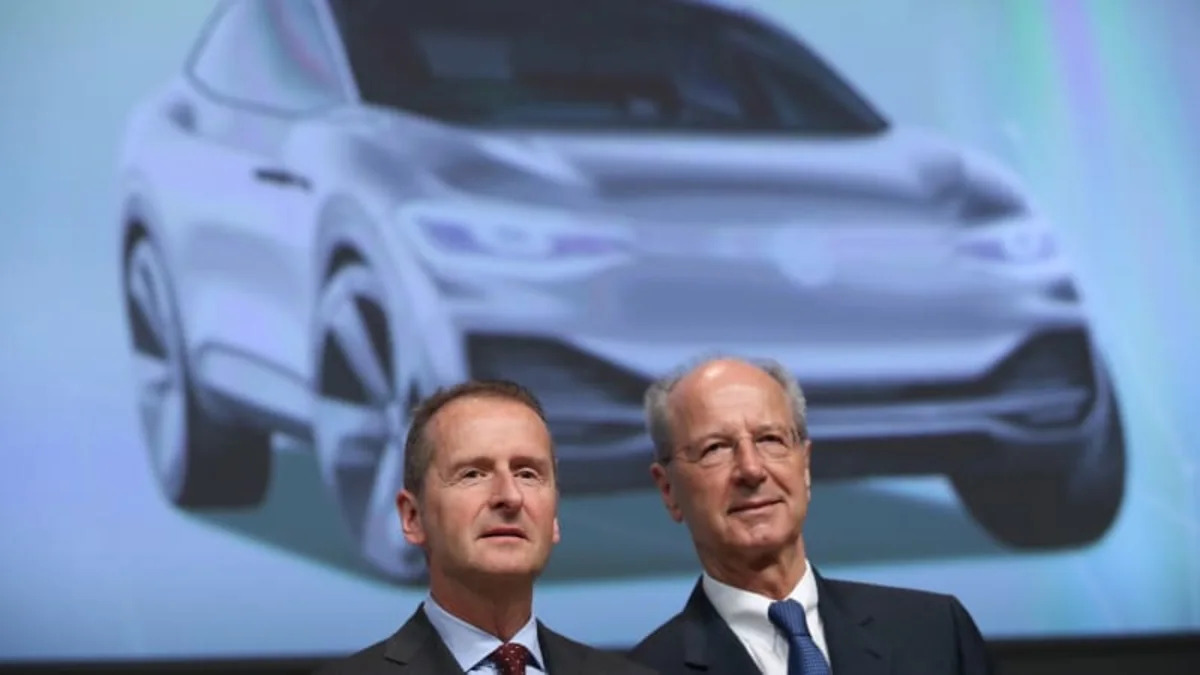FRANKFURT, Germany — Volkswagen says it will invest $50 billion in developing autonomous and electric cars and expand the appeal of battery-powered cars by selling its upcoming I.D. compact for about what a diesel-powered Golf costs.
Chairman Hans Dieter Poetsch told a news conference Friday that the company's plans for the next five years aim to make Volkswagen "a worldwide supplier of sustainable mobility."
Poetsch says the company is in talks with Ford about possible cooperation in making light commercial vehicles.
Volkswagen is converting three of its German plants from internal combustion to battery car production as it pivots away from diesel vehicles in the wake of its emissions scandal. It says it will increase the number of electric models from six now to more than 50 by 2025.
Volkswagen could build up to 15 million electric cars over several years on its new electric vehicle production platform, the company said — adding that its Chief Executive Herbert Diess had misspoken in an interview on Monday.
Automotive News on Monday quoted Diess as saying that VW could build 50 million electric vehicles globally across its brands, beginning in 2020, and had battery sourcing agreements for them.
A VW spokesman on Friday said that the figure, which referred to a theoretical long-term goal for the MEB electric car manufacturing platform, was overstated.
"Diess meant to say 15 million, not 50 million cars," the spokesman said.
VW's supervisory board voted Friday on the multi-billion-dollar EV investment plan, including steps to retool three German plants to mass produce electric cars and to explore alliances with battery partners and rival carmakers.
Labor unions, who control half the seats on Volkswagen's supervisory board, needed to sign off on the plan to create global production capacity for 1 million electric vehicles by 2025 amid their concerns that assembling battery driven cars will require fewer workers.
Around 436,000 industrial jobs in Germany are tied to building petrol and diesel engined vehicles.
Jobs are under threat because a combustion engined car has 1,400 components in the motor, exhaust system and transmission, while an electric car's battery and motor has only 200 components, according to analysts at ING.
Volkswagen's management this week outlined plans to labor leaders for converting car plants in Zwickau, Emden and Hannover to build electric cars, providing job guarantees to workers until 2028.
The first ID electric car is due to roll off the production line in Zwickau in 2019, as the plant ramps up to a production capacity of 330,000 electric vehicles. Zwickau currently builds the VW Golf and the Golf Estate.
Volkswagen's MEB electric vehicle platform is also being eyed by Ford as the two companies continue exploratory talks about an alliance to develop self-driving and electric vehicles and to complement each other's global production footprints.
Material from Reuters was used in this report.
Related Video:


Sign in to post
Please sign in to leave a comment.
Continue